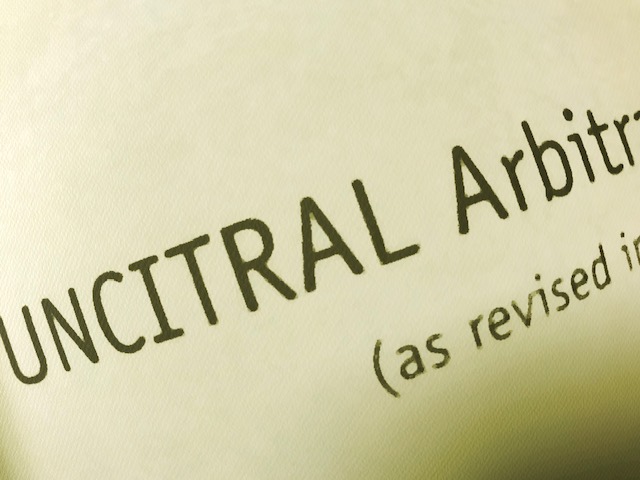This is the second in a short series of articles suggesting some learning points for party wall surveyors arising from consideration of selected Articles from the UNCITRAL arbitration rules 2013 (“the Rules”).
Article 3(5):
“The constitution of the arbitral tribunal shall not be hindered by any controversy with respect to the sufficiency of the notice of arbitration, which shall be finally resolved by the arbitral tribunal.”
It is relatively common in party wall matters for an adjoining owner or his surveyor to challenge the validity of a notice served under the Act. Assuming the notice is invalid, how can the tribunal of surveyors determine that the notice is invalid, when doing so robs that same tribunal of its jurisdiction?
That is precisely the issue which Article 3(5) of the Rules addresses in arbitrations. Whilst there is no similar rule in relation to challenges to the validity of notices served under the Act, it is certainly well-established practice that the tribunal of surveyors has jurisdiction to determine the validity of notices served – see, for, example, Loost v Kremer (unreported, 12 May 1997, per HHJ Cowell), where such jurisdiction was readily accepted.
The basis for such jurisdiction in relation to dispute resolutions under section 10 of the Act might well be said to arise from another difference between the Act and the Rules, namely the explicit requirement under Article 3(1) and (2) for a notice to be served in order to initiate the arbitration process, which can be contrasted with the wording of section 10(1) of the Act, which triggers the appointment of surveyors “where a dispute arises or is deemed to have arisen”.
Article 11:
“When a person is approached in connection with his or her possible appointment as an arbitrator, he or she shall disclose any circumstances likely to give rise to justifiable doubts as to his or her impartiality or independence.”
There is, of course, no corresponding obligation under the Act in relation to disclosure of circumstances which might give rise to doubts about impartiality or independence. However, for those party wall surveyors who are also members of the RICS, their professional conduct rules effectively impose a similar obligation.
The importance of the impartiality and independence of party wall surveyors is something which ought to be obvious, but my experience suggests that insufficient regard is sometimes had by party wall surveyors to this point.
There are two situations where the importance of disclosure is particularly acute.
The first, and most common, is where the party-appointed surveyors are selecting a third surveyor. In those circumstances, and once the third surveyor becomes aware of the selection, he should address his mind to the question of impartiality and independence, and indeed to the appearance of the same, and should inform the parties and the party-appointed surveyors accordingly. The relatively small world of party wall surveyors means that it should in practice be quite common for such disclosure to be required – for example, and perhaps most commonly, where the third surveyor has worked in the same firm as one of the party-appointed surveyors.
The second situation is that where an owner is appointing a surveyor on behalf of the other owner pursuant to section 10(4) of the Act. In practice this appointment is in fact made by the surveyor already appointed by an owner, i.e. as agent for that owner. The fact that the first surveyor is able to choose what might be described as his opponent makes this a situation particularly prone to allegations of partiality, and surveyors in this situation – both those appointing and those being appointed – need to be particularly sensitive to any possible questions as to their impartiality and independence.
